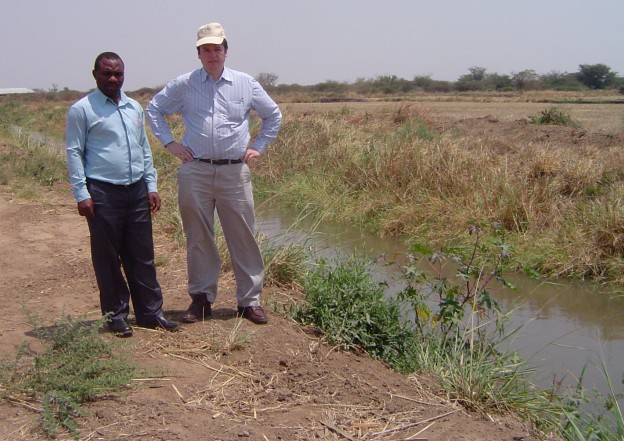Read about our latest project: Increasing irrigation water productivity in Mozambique, Tanzania and Zimbabwe through on-farm monitoring, adaptive management and agricultural innovation platforms
The AIFSC is pleased to announce one of our latest projects: Increasing irrigation water productivity in Mozambique, Tanzania and Zimbabwe through on-farm monitoring, adaptive management and agricultural innovation platforms.
The project is led in Australia by the UNESCO Chair in Water Economics and Transboundary Water Governance at The Australian National University, with contributions from CSIRO Land and Water and the University of South Australia. Partners in Africa include the Food and Natural Resources Policy Analysis Network (FANRPAN), International Centre for Crop Research in the Semi-Arid Tropics (ICRISAT), the University of Pretoria, Ardhi and Sokoine University of Agriculture in Tanzania, and the National Institute for Irrigation in Mozambique.
This project comes out of the foundational work laid by a scoping study Assessing research priorities for blue water use in food production which produced a water strategy for Botswana, Ethiopia, Kenya, Malawi, Mozambique, Tanzania, Uganda, Zambia and Zimbabwe. The region seeks investment of 10% of national budgets to increase agricultural production at six times the current rate under the African Union’s Comprehensive Africa Agricultural Development Program (CAADP) initiative. The land and water resources for such expansion are theoretically available.
Set against these agricultural expansion plans are i) a history of irrigation in the region failing to provide adequate return on investment, ii) weak market integration and weak water governance institutions, and iii) significant degradation and abandonment of irrigated land. Further, surface water is scarce and subject to competition in key river basins, such as the Limpopo and Rufiji. Despite these drawbacks, irrigation expansion will take place, and so research is needed to increase water productivity, the economic value per volume of water consumed. It is also needed to mitigate environmental degradation in current and new irrigated lands.
The irrigation ‘problem’ is systemic in that there is failure at several levels including technical capacity, institutional arrangements and market linkages. In response to such complex problems, an FAO (2012) report calls for the introduction of adaptive management approaches that will lead to social and institutional learning. This project seeks to implement such a program by deploying on-farm monitoring of water applied, soil water, nitrate, salt and groundwater depth and using this as a basis for identifying options for improving water productivity. At the same time the project will use existing farmer organisations as a basis for establishing agricultural “Innovation Platforms” which comprise farmers, political representatives and players across the market value chain in order to identify obstacles and stimulate opportunities for change. The platforms will consider water productivity as well as other constraints to irrigated agricultural productivity.

